
Bare bones convince those who gaze upon them that nothing earthly is ours.

Bare bones convince those who gaze upon them that nothing earthly is ours.
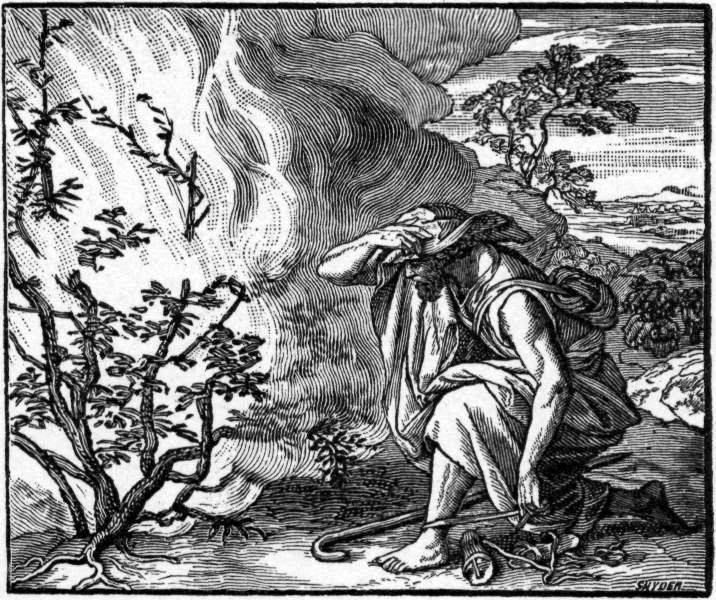
Moses taking of fhis sandals In the earliest years of Christian teaching, dogma was proclaimed only when a denial of something (Jesus’ humanity or his divinity, for example) made it necessary. The articulated doctrine of the Trinity emerged slowly, from the more important domain of silence into the lesser domain of words. Words, even at their best, are inadequate and prone to misunderstanding, leading to concepts and imaginary constructs that can get in the way of participation in the mystery. We need words, but we need them to take us to the place where we realize their inadequacy. They point us in the right direction, but they are never sufficient. In dealing with other religions—or for that matter with serious agnosticism—we should ...
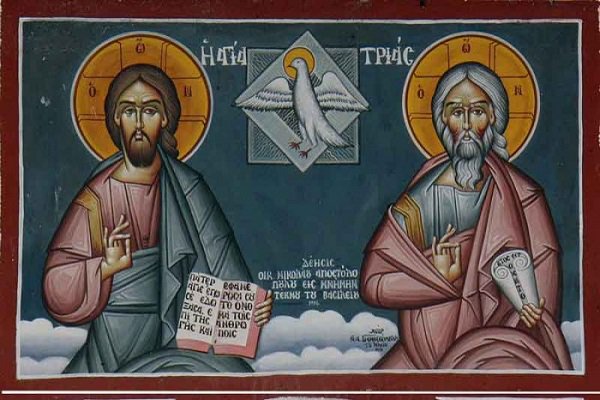
Wednesday, 24 December 2137, the secondary three-man Committee for the Protection of Nature of the International Academy of Sciences was continuing its session. The three esteemed scientific chiefs, who, coincidentally, constituted an informal representation of the three largest races on earth, since one was white, another yellow and a third black, had been called upon to take a final decision on a pioneering proposal. The proposal was framed and submitted by the primary, multi-member Committee of the same Service, and concerned the protection of the Blaniulus Guttulatus worm, which was in danger of extinction for reasons unknown. The report recommended that the new method of wave mutation be applied, by which a person can be transformed into another living species. ...
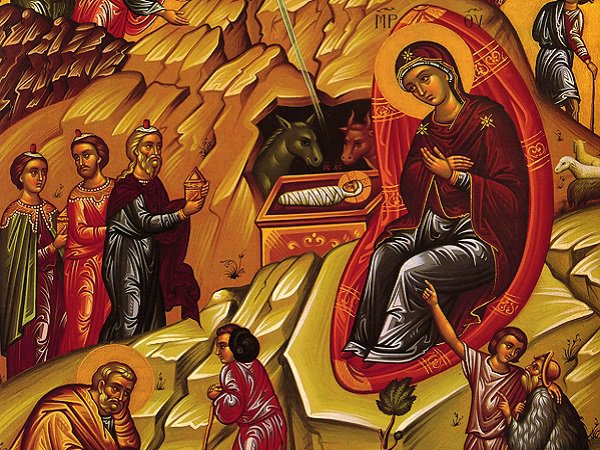
A katavasia (hymn of descent) is the irmos for an ode in a canon, that is it's sung at the beginning of an ode and the rest of the verses are sung to the same melody. It's also repeated at the end of the ode, slowly, with emphasis and compunction. The singers come down from their stand to sing it, which is where it gets its name. Katavasia, ode 9, Christmas canon, tone 1, sung by Panayiotis Neokhoritis, Archon Chanter of the great Church of Christ. Magnify, my soul, her who is greater in honour and more glorious than the hosts on high. A strange and most wonderful mystery do I see. The cave is heaven; the Virgin the throne of the cherubim, ...
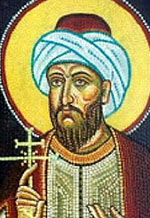
The holy New Martyr Ahmed was born in the seventeenth century to a Muslim family in Constantinople. By profession he was a copyist in the Great Archives. In accordance with Ottoman law, since he did not have a wife, he had a slave instead, a Russian woman. Another captive from Russia lived together with her, an old woman, also a slave. Both these women were very pious. On feast days the old woman would go to church. Taking the blessed bread or antidoron, she would give it to the young woman to eat. The old woman would also bring her holy water to drink. Whenever this occurred and Ahmed was close to her, he would smell a beautiful and indescribable fragrance ...
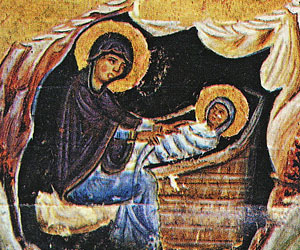
Every time we stand before the Lord either in prayer or in celebration in Church of an event from the life of Christ, or we are in any other way experiencing the presence of the Lord, two basic things happen, which are attested by the Church and the experience of the Saints: Firstly, we are feeling joy because we are experiencing the Lord’s abundant love towards man. He moves our heart into great gratitude, since we are experiencing- to the measure of our spiritual condition- God’s great gift for us. Secondly, by being presented before the Lord we are also standing in a kind of critical judgment for our actions, which leads to our salvation, particularly if this takes place during ...
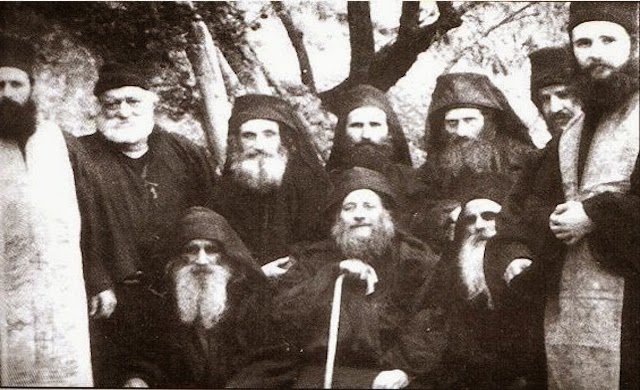
When I first went to live with my holy Elder, there in that harsh place in the desert, when I was living close to this man, that’s when I became acquainted with my egotism and saw it in practice.
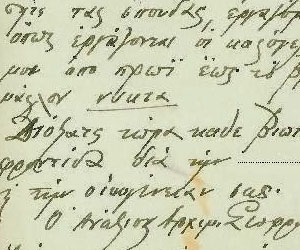
Paraskevi, who out of sheer humility does not wish to reveal her full name, was among the first spiritual children of Elder Sophrony, during the time of her studies in England. She sent us a copy of two handwritten scripts by the blessed Elder. A good wish card which the blessed Elder sent during Christmas 1967, when Paraskevi was going through some difficult times because of the illness of a close relative The outside of the card The Christmas wish card (handwritten): Archimandrite Sophrony The Old Rectroy,Tolleshent Knight by Maldon, Essex Christmass 1967, + Dear beloved in Christ, Sister Paraskevi. May the Lord’s grace and peace be abundant in you. Let me first wish you Merry Christmas and a blessed New Year! Paraskevi, has it ever happened to do something ...
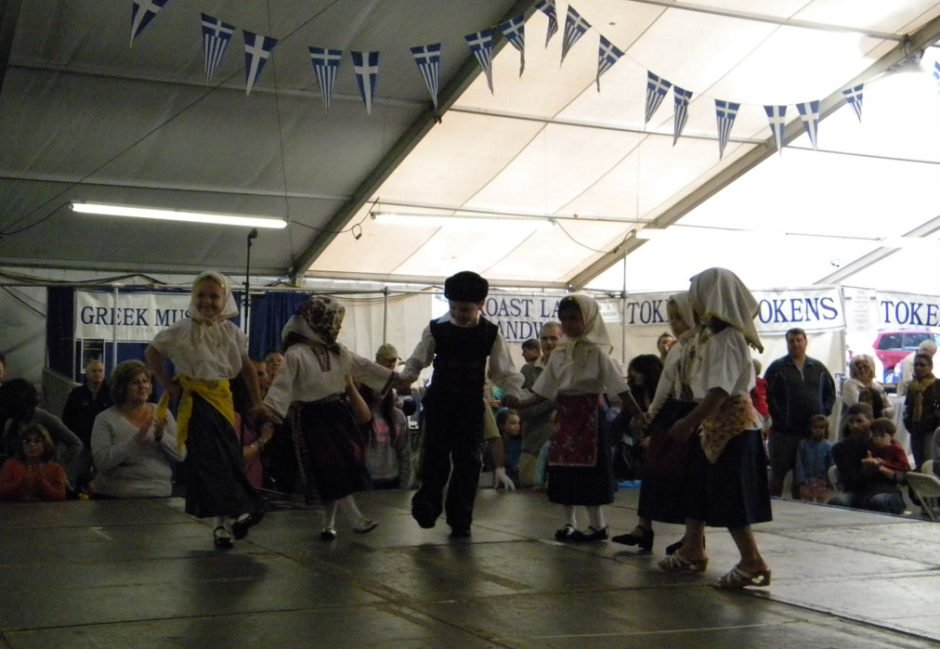
Nationalism is our form of … idolatry ... ''Patriotism'' is its cult. It should hardly be necessary to say that by ''patriotism'' I mean that attitude which puts one’s own nation above humanity, above the principles of truth and justice; not the loving interest in one's own nation, which is the concern with the nation's spiritual as much as with its material welfare ... Just as love for one individual which excludes the love for others is not love, love for one's country which is not part of one's love for humanity is not love, but idolatrous worship.” (Erich Fromm) I once asked an Orthodox Cypriot nationalist, “If you had no other choice but to worship at either a Greek Anglican ...

Cake Demonstrating Homosexual Marriage The best place to access the views, questions, prejudices and challenges of the World is, I believe, the office water-cooler. The next best places would be the Huffington Post and (for Canadians), the CBC. The water-cooler however retains its pride of place as the site more often visited by the common man who, if he retains his common sense, tends to avoid the Huffington Post and the CBC. Anyway, it was at the office water-cooler that the common man (in this case, a woman) was expressing the common view on gay marriage, and asking with some anger, “If two guys love each other, why can’t they get married?” The anger accompanying the question indicated that the ...

God is good and loves us and he asks that we should be charitable and perform works of love.

I was having a conversation recently about the Occupy Movement, where it was described to me as violent and un-American. I have to disagree with my fellow Orthodox Christian's viewpoint. Although I do agree that perhaps the youth of the Occupy Movement could be better organized, and it has attracted some rogue rebels without a cause as with any movement, I do not see how speaking out against injustice could ever be a bad thing? In fact, isn't speaking out against injustice a major principle of Jesus' teachings? From my upbringing in the Orthodox faith, I was always under the impression that speaking out against injustice is the ultimate expression of love towards mankind. First of all, I realize that recently part ...
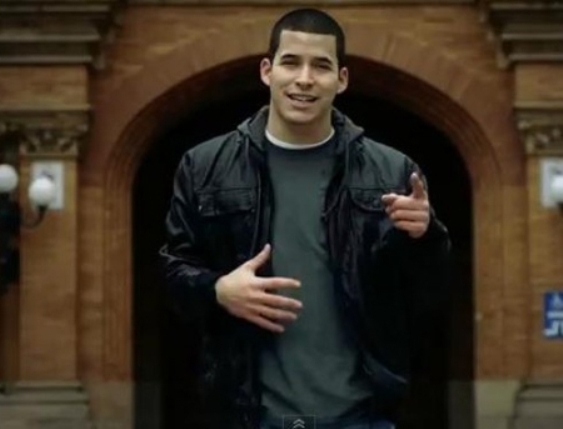
There was a lot of talk in January about Jefferson Bethke’s “Why I hate religion but love Jesus” spoken word video. Since it was posted on January 14, it’s been viewed over twenty million times on Youtube. A lot of Orthodox (and other Christians) have responsed to it. Not one of those responses – not even the one for which I wrote the script – actually acknowledges that Jefferson Bethke might have a point. Jefferson Bethke In an interview after the release of the video, Mr. Bethke said “If you went through the entire poem and replaced the word religion with either legalism or self-righteousness or hypocrisy, it would have not changed my intention or the heart of that poem whatsoever. ...

First version: An undignified Trinity Once upon all the time, there’s God. And from some time there’s human beings. But the reports coming from Earth about the state of humankind are increasingly distressing. The human race is going from bad to worse, despite all God’s efforts, through the various representatives whom He’s sent from time to time to bring it back to its senses. In the face of this anomalous situation, the Holy Trinity meets. It decides to hear the views of people themselves on the subject and to discuss suggestions on how to get round the predicament. In a few days, the representative of humankind arrived, an outstanding personality, a wise Counsellor of the Emperor, who enjoyed great prestige among ordinary people. ...
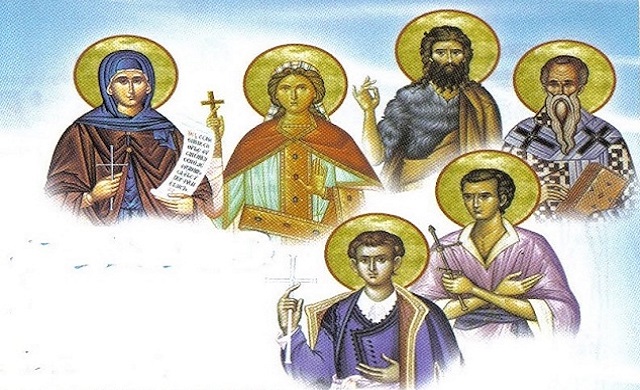
If Christians have the true faith but no works of faith to show for it, then their faith is in vain and useless.